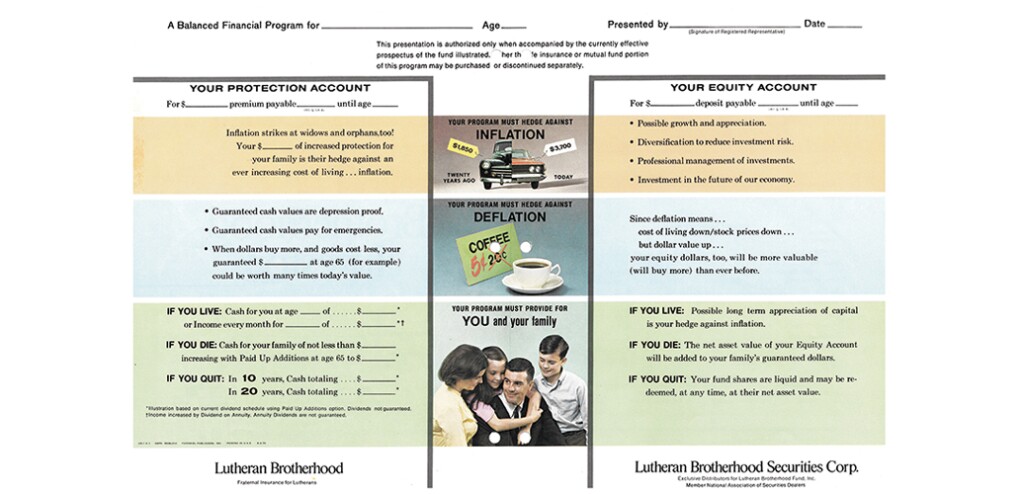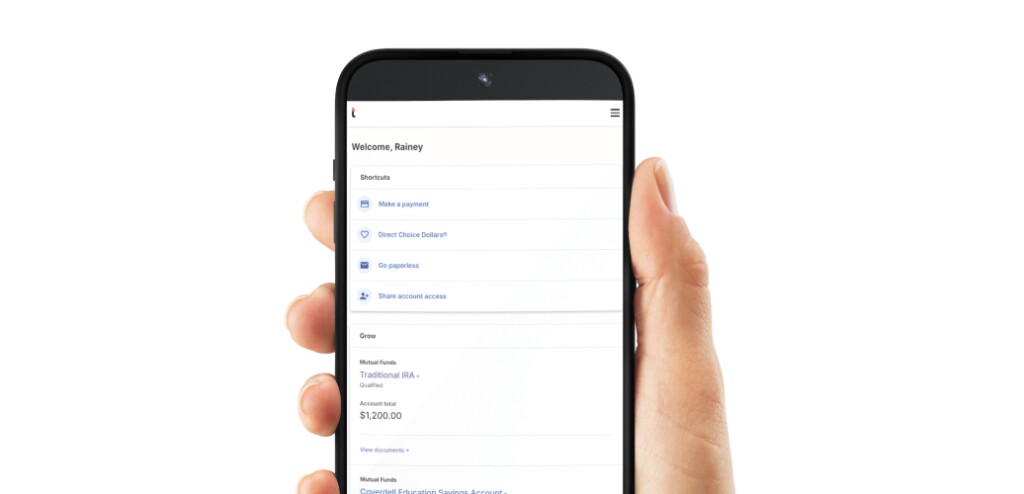As you're building your nest egg, you'll probably reach a point where you've saved up an amount of cash that's comfortable for you. It's a wonderful feeling, and you've accomplished a key step in thoughtfully managing your finances. But you may be curious whether your money could be working harder. Perhaps your risk tolerance is itching to go beyond an everyday savings account but not so much that you're ready to give up stability and liquidity.
One option to consider is a money market mutual fund, which can offer a higher return than traditional savings accounts while still letting you move money quickly when you need to. These funds don't have the volatility of the market at large and can be another tool in your financial toolbox for conservatively providing for yourself and others.
Read on to learn how money market mutual funds work before deciding if they make sense for you.
What are money market mutual funds?
Money market funds are mutual funds that invest in short-term liquid instruments like cash, short-term securities and other holdings that are likely to pay out in the near future. You might invest in a money market fund to earn a small return while keeping risk at a low level.
Money market accounts vs. money market mutual funds: Key differences
It's important to note that a money market fund is not a bank account. This may be confusing as you've likely seen
- Money market accounts. These are bank and credit union products where your deposits are typically federally insured. That means the federal government guarantees those accounts will be safe up to certain limits.
- Money market mutual funds. These are mutual funds with no deposit insurance. However, money market funds are considered quite safe compared with the volatility of other mutual funds.
As
How money market funds work
Money market funds are required to invest in high-quality, short-term securities. Those holdings typically pay a small amount of interest, and the fund forwards the majority of any earnings to investors in the form of dividends.
When you invest in a fund, the fund issues shares, and you can sell your shares on any trading day to generate cash. In some cases, you receive a checkbook that draws from the money market fund, allowing you to bypass the logistics of selling shares and moving cash.
Unlike other types of mutual funds, retail money market funds seek to keep the share price level at $1. Other types of money market funds are discussed below, but the primary focus is retail funds, which are what the general public typically uses.
A money market fund might hold various assets, and several rules help to manage (but not eliminate) their risk. For example, most retail money market funds available to the general investing public must satisfy the following criteria:
- The fund can generally only purchase holdings with a maturity of 13 months or less.
- No more than 5% of assets may be invested with a single issuer (except government-backed issuers).
Those measures are intended to keep risk relatively low. In general, shorter lending periods are considered less risky as long maturities open the door to more unforeseen events. Plus, debt investments with long maturities can be more volatile when interest rates rise.
Holdings in a money market fund often include:
- Short-term
CDs (bank-issued time deposits) - Bankers' acceptances (a guaranteed future payment from a bank)
- Repurchase agreements (agreements to sell and repurchase securities at predetermined prices)
- Obligations of the U.S. Treasury or state and local government bodies
- Commercial paper (unsecured promissory notes with short maturities)
Those instruments may be unfamiliar to most investors, but they make up the money markets, which help organizations with cash management.
Types of money market funds
You can choose from a variety of money market funds depending on your preferences. While money market funds are generally considered safe, some of them are safer than others. Certain factors may be important:
- Treasury funds. This option has the lowest risk of principal loss, with at least 99.5% of the fund's assets invested in cash or securities that are backed by the U.S. Treasury.
- Government funds. These invest at least 99.5% in cash or securities that are backed with an implicit or explicit guarantee from the U.S. government. These funds may hold government agency securities in addition to Treasury securities.
- Prime funds. These involve investing in government securities as well as other vehicles. A prime fund might have short-term CDs, commercial paper and other corporate debt obligations.
Municipal bond funds . This type of fund generally invests at least 80% of assets in holdings that generate income exempt from federal income tax. Some funds are state-specific, potentially enabling income to be free of state and local income tax as well.
As you evaluate your options, consider what's most important to you:
- A treasury or government money market fund might be appropriate if you want to minimize the risk of losing money. But remember that minimizing risk might come with lower returns.
- A prime fund might be appealing when you want to earn as much as possible while using money market funds. Prime funds have historically paid the highest rates, but past performance does not guarantee future results.
- Those with high incomes or who live in high-tax areas might prefer municipal money market funds. The tax-adjusted income from those funds might be higher than you can earn from other options. You'll want to work with a tax professional to run the numbers.
Individual investors typically use retail money market funds, but institutional funds (which are not limited to institutional investors) also are available. Institutional funds may have a fluctuating share price and additional restrictions and fees.
How to invest in money market funds
As with any mutual fund, investing in a money market fund is generally quite easy.
- Choose the type. Start by deciding what type of fund to invest in. For example, do you want a high level of safety from a treasury fund, or do you prefer tax-free money market funds?
- Select a sponsor. Money market funds are widely available from most investment companies, and many sponsors offer prime, government and municipal options. In brokerage accounts, you might be able to buy money market funds from numerous sponsors, although transaction fees may apply. The best choice might depend on features like yields, check-writing availability, fund composition and where you hold other investments.
- Read the prospectus. Always read a fund's prospectus before investing. That document provides information about fees, risks and other aspects that are important for investors. A financial advisor can walk you through it and explain anything that's unfamiliar.
- Add money. Depending on the type of account you use and how you set it up, money might automatically go into a money market fund when you add cash to your account. Alternatively, you might need to place a trade to buy shares of a money market fund.
Once your funds are invested, you have several options for what to do next. You might simply leave the money where it is and reinvest any dividends—letting it build toward a goal of spending on something meaningful for your loved ones, serving as a source of an emergency fund, giving back to causes you care about or transferring to future generations. Or you can use the funds whenever, whether you systematically transfer money into other investments or write checks from the account. It's up to you.
Advantages of money market funds
- Low risk. Grow your money with relatively low risk.
- Liquidity. You can generally
access your funds within one trading day or sooner. - Competitive rates. Yields may be higher than what you can earn from banks and credit unions. Plus, yields could rise faster than banks raise their interest rates on savings accounts.
Potential drawbacks of money market funds
- Low return. Being on the low-risk end of the investing spectrum, it's unlikely that money market funds will provide relatively large gains over the long term.
- Inflation risk. Funds earning a low return could
lose purchasing power over time. - Small risk of loss. While losses are unlikely, money market fund investments can potentially lose value. Historically, investors in such funds have only seen losses twice. Since then, regulators have enacted rules aimed at enhancing the stability of retail money market funds.
- Potential restrictions. Some prime money market funds limit your ability to withdraw money, especially during extreme market events, or you may need to pay fees to take withdrawals.
The bottom line
If you're looking for a bank alternative and you're willing to accept slightly more risk, money market funds are worth considering. While mutual funds don't have backing from federal insurers, they generally maintain a stable share price and offer competitive earnings. You have numerous options to choose from, and the right choice depends on your financial situation and your priorities in looking out for yourself, your loved ones and your community.
Help is available as you sort through the options. Meet with a







